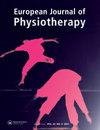Self-reported confidence of final year Australian physiotherapy entry-to-practice students and recent graduates in their capability to deliver care via videoconferencing
IF 1.1
Q3 REHABILITATION
引用次数: 4
Abstract
Abstract Objective To investigate the self-reported confidence of final year Australian physiotherapy students and recent graduates in their capability to deliver care via videoconferencing. Design A national cross-sectional survey Participants Australian physiotherapy students enrolled in their final year of an entry-to-practice physiotherapy program and recent graduates (graduating year 2020 or 2021) from an entry-to-practice physiotherapy program. Methods Participants were recruited via email invitation from their university, direct invitation during a lecture/tutorial and advertisements on social media. Participants rated their confidence (using 4-point Likert scales) in performing 60 individual core capabilities across seven domains from an international core capability framework developed for physiotherapists delivering quality care via videoconferencing. Data were dichotomised with ‘moderately confident’ and ‘extremely confident’ deemed as ‘confident’ and ‘slightly confident’ and ‘not confident’ deemed as ‘not confident’. Results 343 participants from 20 (out of 25) Australian universities offering entry-to-practice physiotherapy programs completed the survey. The most common program participants were enrolled in/completed was a Bachelor of Physiotherapy (61%, n = 209). Overall, most (75–100%) participants were confident in the domain ‘delivery of telehealth’, many (51–74%) were confident in domains of ‘patient privacy and confidentiality’, ‘patient safety’, ‘assessment and diagnosis’, ‘care planning and management’, and some (25–50%) were confident in ‘technology skills’ and ‘compliance’ issues. Conclusion Findings from this study highlight areas where final year entry-to-practice physiotherapy students and recent graduates may need additional support and training to deliver quality care via videoconferencing. These findings can inform the content of telehealth physiotherapy curricula.澳大利亚物理治疗专业大四学生和应届毕业生对他们通过视频会议提供护理的能力充满信心
本文章由计算机程序翻译,如有差异,请以英文原文为准。
求助全文
约1分钟内获得全文
求助全文

 求助内容:
求助内容: 应助结果提醒方式:
应助结果提醒方式:


